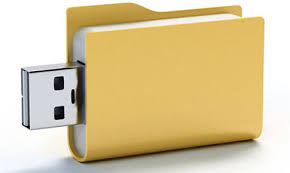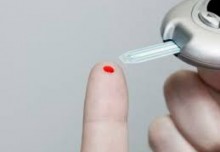 It may not be hard for you to remember when you had your last physical with your primary care physician. And you may even remember when you had your last tetanus shot, but I am willing to wager that you are not nearly as on top of when you older mom, dad or other loved one was last vaccinated, had their last mammogram or even vision exam. Yet you should have all of this and more at your fingertips, because knowing the stats could very well save your loved one’s life. because they may not have all of that information readily available either.
It may not be hard for you to remember when you had your last physical with your primary care physician. And you may even remember when you had your last tetanus shot, but I am willing to wager that you are not nearly as on top of when you older mom, dad or other loved one was last vaccinated, had their last mammogram or even vision exam. Yet you should have all of this and more at your fingertips, because knowing the stats could very well save your loved one’s life. because they may not have all of that information readily available either.
If your loved one is part of a health system that has all hospital as well as lab and doctors’ records digitized and stored on a name and password-protected server, you may already have access to the vital statistics you will one day need. If not, here is how to get started. The categories of information you will want organized (consider an accordion file folder if you are more comfortable with paper or a file folder on your personal computer if you can digitize all information):
- Basic contact information, in case of emergency( ICE) and medical releases (If you need a form for this, please write to our info@creativecaremanagement.com -we will share one we use, powers of attorney (for medical), advanced directives, etc.
- Personal medical history of your loved one as well as relevant family medical history given that many medical conditions are genetically linked – “in the family.”
- Current primary care provider information and predecessor providers if there has been any switch of providers.
- Other medical specialists whom your loved one has seen or continues to see, such as OB/GYN, cardiologist, endocrinologist, etc.
- Dentist contact information and a history of dental visits and any conditions of ongoing concern
- Alternative providers which may range widely from chiropractors to podiatrists, from acupuncturists to massage therapists and more.
- A record of all recent lab or other diagnostic tests and screenings.
- A history of all immunizations including the seasonal flu vaccines as well as less frequent TB tests, tetanus immunizations and beyond.
- A list of all medications (dose amount and frequency), over the counter medications (e.g., analgesics, sleep aids, etc.) and nutritional supplements.
- Insurance contact information as well as any forms or recent billing advice forms in order to track who has been reimbursed and who has not or even who has billed inappropriately.
- Allergies to foods or medications or other environmental risks (e.g., bee stings) of note.
- And, of course the “miscellaneous” category for everything else that may be relevant (e.g., pets and their food preferences, passwords, etc.).
At the end of the day, consider this to be one of your emergency kits should you get a call from medical or emergency personnel. If you have the answers to their questions, you also will be a life saver to your older loved one.
Charlotte Bishop is a Geriatric Care Manager and founder of Creative Care Management, certified professionals who are geriatric advocates, resources, counselors and friends to older adults and their families in metropolitan Chicago. Please email your questions to info@creativecaremanagement.com.





